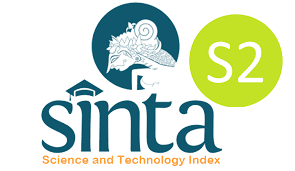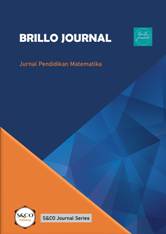Effect of Constructivist-Based Teaching Strategy on Students' Computational Ability in Mathematics: A Gender Study in Port Harcourt
DOI:
https://doi.org/10.56773/bj.v4i1.64Keywords:
Constructivist-based teaching strategy, Mathematics computational ability, Gender differences, Probability in mathematicsAbstract
The study investigated the effect of Constructivist-Based Teaching Strategy (CBTS) on students’ Mathematical Computational Ability (MCA). It aimed to determine the difference in MCA of students taught with CBTS and Conventional Method (CM); ascertain the difference in MCA of male and female exposed to CBTS and ascertain Interaction effect between the teaching strategy and gender on students MCA. A quasi-experimental research design was employed. A sample of 240 students was selected from a population of 21,079 from 38 Public Senior Secondary Schools in the Port Harcourt Metropolis of Rivers State, using a purposive and stratified random sample technique. Data were collected using a validated Computational Ability Test (CAT) on Probability. The experimental group used CBTS, while the control group used CM. Analysis was conducted using mean, standard deviation, and analysis of covariance at a 0.05 significance level. The findings of the study revealed that the experimental group outperformed the control group in terms of MCA, as evidenced by a statistically significant difference in mean scores. Additionally, a significant difference in the mean scores of male and female students taught probability using a CBTS was seen, and MCA of the male student was favored over that of the female student by CBTS. Additionally, a noteworthy interaction impact between gender and teaching approach in MCA was demonstrated by the results. Teachers should adopt CBTS in addition to the CM to help students become more proficient computationally.
References
Adaramola, M. O. (2014). Effects of constructivist learning strategy on students’ computational ability in Mathematics in junior secondary schools in Rivers State. The Journal of National Mathematics Centre, Abuja, 3(1), 475–484.
Adaramola, M. O. (2015). Probability [Paper Presentation]. 2nd Riversman Mathematics Summer Workshop.
Agwagah, U. N. V, Arua, S. N., & Abugu, G. N. (2019). Effect of Computer Assisted Instructional Approach on Students’ Achievement in Mathematics. ABACUS: Journal of the Mathematical Association of Nigeria (MAN), 44(1), 426–433.
Ahumaraeze, O. U. (2018). Constructivist-based instructional strategy and senior secondary school students’ computational ability in Mathematics in Port-Harcourt Metropolis. University of Port-Harcourt.
Ahumaraeze, O. U., & Ekwueme, C. O. (2019). Effect of Constructivist-based instructional strategy on senior secondary school students’ academic performance in Mathematics in Rivers State, Nigeria. Abacus (Mathematics Education Series), 44(1), 138–147.
Ahumaraeze, O. U., & Nlewedim, C. E. (2025). Improving Students’ Retention in Mathematics Using Excel Spreadsheet Software Package in Port Harcourt, Nigeria. Journal of Instructional Mathematics, 5(2), 121–135. https://doi.org/10.37640/jim.v5i2.2147
Akpan, E. T., Charles-Ogan, G. I., Onyeka, E. C., & James, G. D. (2022). Application of GeoGebra in Model Based Learning and Students’ Academic Performance in Solid Geometry. International Journal of Science and Research (IJSR), 11(12), 1054–1059. https://doi.org/10.21275/SR221110054710
Angraini, L. M., Kania, N., & Gürbüz, F. (2024). Students’ Proficiency in Computational Thinking Through Constructivist Learning Theory. International Journal of Mathematics and Mathematics Education, 2(1), 45–59. https://doi.org/10.56855/ijmme.v2i1.963
Angraini, L. M., & Muhammad, I. (2023). Analysis of Students’ Computational Thinking Ability in Prior Mathematical Knowledge. Indonesian Journal of Teaching and Learning (INTEL), 2(2), 253–264. https://doi.org/10.56855/intel.v2i2.308
Anietimfon, E. W. (2020). Effect of peer learning strategy on students’ performance in indices and logarithms. Sapientia Foundation Journal of Education, Sciences and Gender Studies (SFJESGS), 2(2), 153–159.
Asrianti, M. A., & Rakhmawati, F. R. (2024). The Effect of Problem-Based Learning Model on Students’ Mathematical Computational Thinking Skills. JME (Journal of Mathematics Education), 9(1), 83–88. https://doi.org/10.31327/jme.v9i1.2168
Badru, A. K. (2022). Enhancing Senior Secondary Students’ Cognitive Performance in the Mathematics Concept Through Problem Solving Approach. Abacus (Mathematics Education Series), 47(2), 126–140.
Brooks, G. J., & Brooks, G. M. (1999). In search of understanding: The case for constructivist classrooms. Association for Supervision and Curriculum Development.
Bupo, G. O. (2019). Effects of blended learning approach on business education students’ academic achievement and retention in financial accounting in universities in Rivers State. Nnamdi Azikiwe University, Awka.
Ekwueme, C. O. (2013). Mathematics teaching and learning in schools. Radiant Ventures Ltd.
Frederick-Jonah, T. M., Moses, J. B., & Benneth, E. (2022). Effects of youtube videos instructional strategy in enhancing students’ achievement in Mathematics by gender and birth order. Abacus (Mathematics Education Series), 47(1), 1–13.
Gamage, T., & Charles-Ogan, G. I. (2019). Geogebra software and students’ performance in teaching and learning circle geometry. Abacus (Mathematics Education Series), 44(1), 476–486.
Harris, A. (2022, August 30). What Are Math Computation Skills? Sciencing.Com. https://www.sciencing.com/math-computation-skills-8530548/
Hartawan, I. G. N. Y., Putri, L. H. A., & Mahayukti, G. A. (2024). Junior High School Student’s Computational Thinking Ability in Solving Mathematical Problems. Jurnal Pedagogi Dan Pembelajaran, 7(1), 124–133. https://doi.org/10.23887/jp2.v7i1.78001
Iji, C. O., Abakpa, B. O., & Takor, D. I. (2015). Utilizing Mathematical manipulative to improve upper basic one students’ achievement in algebra in Kwande local government area, Benue state. ABACUS: Journal of the Mathematical Association of Nigeria (MAN), 40(1), 300–309.
Jolaosho, R. A., Dajan, H. J., & Ezeudu, S. A. (2020). Interaction effect of youtube instructionalpackage videos on secondary school studentsacademic achievement and retention ineconomics in Education District VI, Lagos State. SSRG International Journal of Humanities and Social Science (SSRG-IJHSS), 7(3), 34–41.
Macaulay, A. U., & Obafemi, D. T. A. (2022). Gender and Instructional Strategy as Predictors of Students’ Performance in Electrolysis in Obio-Akpor Local Government Area of Rivers State. International Journal of Advanced Academic Research, 8(3), 28–38.
Nwankwo, O. C. (2013). A practical guide to research writing for students of research entreprise (5th ed.). University of Port Harcourt Press Ltd.
Odogwu, H. N. (2014). A Comprehensive Guide for Teaching Mathematics in Secondary Schools. Sibon Books Limited.
Onwuka, P. I. (2015). Effects of constructivist-based teaching strategy on students learning outcome in Mathematics. ABACUS: Journal of the Mathematical Association of Nigeria (MAN), 40(1), 310–316.
Planning, Research, & S. (PRS) D. (2022). Students Enrolment for Second Term. Rivers State Senior Secondary Schools Board (RSSSSB).
Salman, M. F. (2003). Enhancing the implementation of the universal Basic Education Mathematics curricula through the use of information technology as packaged in the calculator and computer. The Journal of Mathematics Association of Nigeria (MAN), 28(1), 35–40.
Sam-Kayode, C., & Salman, M. (2015). Effect of ludo game on senior school students’ performance in probability. ABACUS: Journal of the Mathematical Association of Nigeria (MAN), 40(1), 83–91.
Zalmon, I. G., & Nwagor, P. (2015). Effect of problem-based learning strategy on the mathematics reasoning of senior secondary students in geometry. Journal of Issues on Mathematics, 17(1), 52–67.
Downloads
Published
How to Cite
Issue
Section
License
Copyright (c) 2024 Onyekachi Uchechukwu Ahumaraeze, Gladys Ibibo Charles-Ogan

This work is licensed under a Creative Commons Attribution 4.0 International License.
The authors agree that this article remains permanently open access under the terms of the Creative Commons Attribution 4.0 International License





